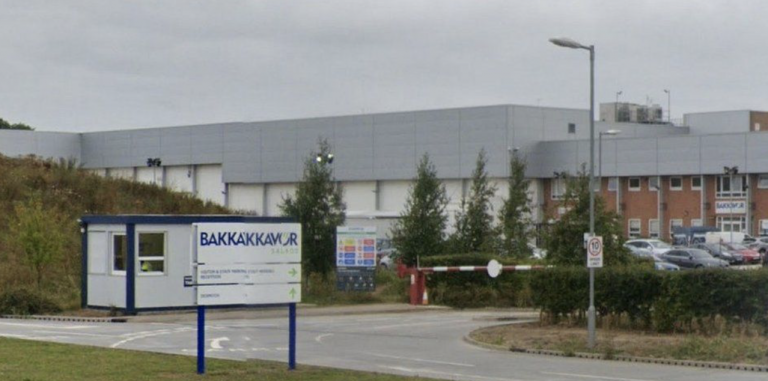The latest KPMG and REC, UK Report on Jobs: Midlands survey saw permanent placements decline for the first time since February 2021 and a second consecutive reduction in temporary billings during October. Pay inflation, meanwhile, remained elevated amid reports of both high demand for labour alongside shortages in candidate availability.
The KPMG and REC, UK Report on Jobs: Midlands is compiled by S&P Global from responses to questionnaires sent to around 100 recruitment and employment consultancies in the Midlands.
Renewed decline in permanent placements
The number of permanent placements across the Midlands fell for the first time since February 2021 in October. Moreover, the rate of decline was marked. Recruitment consultancies indicated that the renewed decline in permanent placements stemmed from the weak levels of demand that firms across the UK are currently facing.
The decrease in permanent placements in the Midlands was the second sharpest of the four monitored English regions, behind only London which registered the fastest decline since July 2020. All of the monitored English regions recorded lower levels of permanent placements and three of the four downturns followed increases in the previous month.
Temp billings fall at the fastest rate since June 2020
Temporary billings fell for a second consecutive month at the start of the final quarter. Moreover, the rate of decline accelerated from September and was the quickest since June 2020. Anecdotal evidence suggested that the downturn was linked to the worsening economic landscape in the UK. Other firms mentioned that a shortage of candidates also contributed to the decline.
The fall in temp billings in the Midlands was the fastest of the four monitored regions. Conversely, the South of England registered a marked upturn which underpinned the uptick at the UK level.
Demand for staff across the Midlands continued to increase in October, although rates of expansion remained below the respective historical averages. Permanent vacancies rose at a robust rate but at one which was comfortably below the survey peak recorded in July 2021.
Meanwhile, October data completed two consecutive years whereby demand for temporary staff has increased on a monthly basis. The rate of growth, however, was the slowest since January 2021.
Downturn in permanent staff availability sharpens
Recruiters across the Midlands registered a drop in the supply of permanent staff in October which was the nineteenth in as many months. The reduction was sharp and quicker than in September but remained much softer than seen across much of the past year-and-a-half. Candidates were reportedly reluctant to move positions amid widespread economic and market uncertainty. The Midlands posted the softest fall in permanent candidate numbers of the four monitored English regions whilst the North of England reported the sharpest decline.
Temporary staff availability falls at a softer rate
The availability of candidates for temporary roles in the Midlands fell in October, thereby stretching the current negative sequence to 20 months. Anecdotal evidence suggested that people were currently seeking extra stability and had a preference for permanent positions. Other recruitment consultancies also mentioned that high levels of employment across the UK meant that there was a general lack of candidates. That said, the rate of decline in temporary staff availability was the softest since March 2021. Bucking the wider trend, London registered the first uptick in temp staff availability in a year-and-a-half.
Permanent salary growth eases to 18-month low
October data signalled that salaries for permanent new joiners in the Midlands increased for the twentieth month in a row. Though remaining elevated, the rate of increase was much slower than in September and the softest in a year-and-a-half. The rise in permanent salaries was reportedly reflective of a talent shortage, with firms subsequently forced to increase salaries to entice candidates. On a national level, the increase in permanent starting salaries was led by London, though all four monitored English regions registered marked inflation.
Rate of temp wage inflation the softest since May 2021
Hourly pay rates for temporary staff increased further in October, stretching the current sequence of inflation to just short of two years. Anecdotal evidence suggested that a combination of high demand for staff and a shortage in available labour drove the increase in temp wages. That said, the rate of inflation was the softest since May 2021. The rise in the Midlands was also the weakest of the four monitored English regions. London recorded the steepest increase in temporary pay, followed by the South of England.
Commenting on the latest survey results, Kate Holt, people consulting partner at KPMG UK, said: “The looming recession is clearly impacting the UK jobs market. Candidates’ reluctance to move as a result of the challenging economic landscape has resulted in higher demand for staff across the Midlands but fewer actual placements. Employers are also improving their benefit and development offerings, which has also made a significant impact in the number of available candidates. “The talent war is ongoing in the Midlands and now more than ever, it’s essential that we focus on upskilling the workforce to support and boost economic recovery when it comes. The jobs market will bounce back, particularly if we invest in the skills of the workforce across all sectors of the economy.” Neil Carberry, Chief Executive of the REC, said: “The economic and political uncertainty of September and October has caused employers to become more cautious in their approach to hiring than during the frenzy of earlier in the year. “We’ve witnessed permanent placements decline in the Midlands for the first time since February 2021 and a second consecutive reduction in temporary billings in October. Activity overall, is still well in advance of pre-pandemic levels, however. We will need to watch how this story develops over months to come, but so far this data suggests heightened employer caution, not a retreat from the market. “It remains the case that firms in many sectors are struggling to hire, as hours worked remain below their pre-pandemic level despite record-low unemployment. We’re looking to the Autumn Statement later this month to help with removing the brakes on growth by reforming the apprenticeship levy to build a more effective skills system, improving support to help people move from inactivity to work, and align other policy areas – like work permits – with a growth strategy.”





















